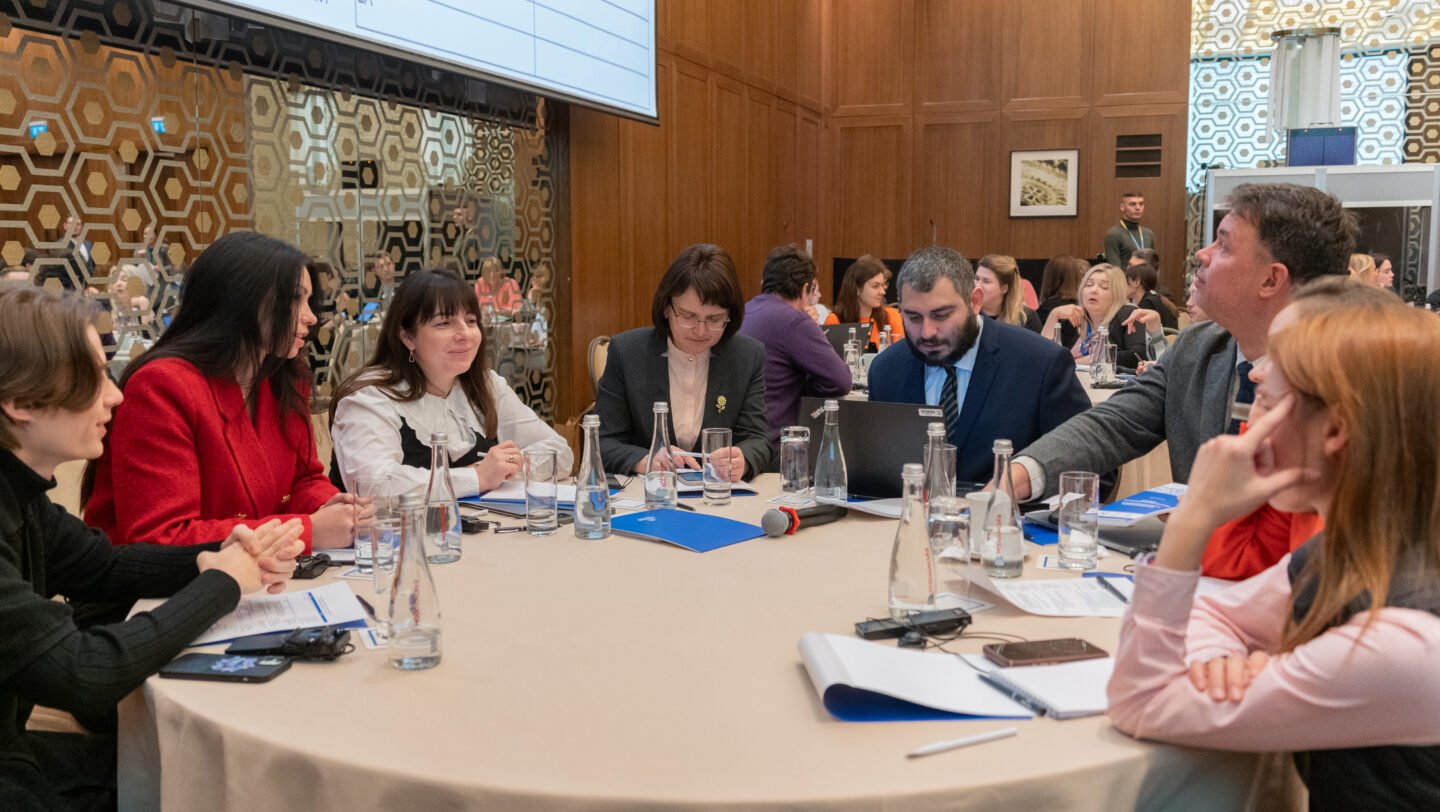Legal aid serves as crucial lifeline for thousands of Ukrainians in the midst of full-scale war
Legal aid serves as crucial lifeline for thousands of Ukrainians in the midst of full-scale war

Five of UNHCR's NGO partners provide legal aid in Ukraine.
This is illustrated by the story of 84-year-old Halyna who was forced to flee her home in Bilyi Kolodiaz, near Vovchansk in Kharkiv region, in July 2024 following Russia’s intensified ground offensive. With support of UNHCR’s partner Right to Protection, she was able to restore her identity documents and find a temporary home in a collective site. With legal support, she was also able to access state benefits as an internally displaced person, and apply to the Government’s eVidnovlennia programme to obtain compensation for her destroyed home.
“I worked hard all my life, and now I am left without anything. Even if the war is over, I will not be able to return. My home is destroyed, and the entire village is heavily damaged,” Halyna said.
She hopes to be able to find a more permanent new home, as she has nowhere to return to. Restoring her documents has given Halyna the opportunity to start rebuilding her life elsewhere.

Through free legal aid, provided by UNHCR's Ukrainian NGO partner Right to Protection, 83-year-old Halyna, who fled her home in Kharkiv region due to Russia's intensified ground offensive, was able to restore her identity documents and access state benefits.
Complementing the Government’s Free Legal Aid system, UNHCR’s legal aid programme, implemented with five Ukrainian NGO partners, is available across the country for internally displaced and other war-affected people, returnees, asylum-seekers, refugees, and stateless people. Since the start of the full-scale war, UNHCR and its NGO partners have provided more than 450,000 legal consultations to 174,000 people. This has been the key to access social assistance, pensions, compensation, a new birth certificate, a replaced identity document, or legal justice for survivors of violence.
With a multitude of actors offering legal aid to people in Ukraine, managing the quality of this services is essential. When people need legal aid services, they should have assurance that they will receive the same and best advice and support, irrespective of the provider.

A multiservice hub in Kharkiv city serves as a “one-stop shop” where forcibly displaced and other war-affected people can receive a variety of essential services and support, including legal aid – all in one place.
On 21 November, UNHCR together with the National Coordination Centre for Free Legal Aid under Ukraine’s Ministry of Justice convened Government and humanitarian practitioners for the first national forum for providers of free legal aid. The aim was to discuss challenges, good practices and strategies – all with a view to enhance the support available to those impacted by the full-scale invasion, knowing that for many people legal aid provides a lifeline.
“Legal aid makes a difference, and the quality of this legal aid is more than a technicality. Many internally displaced people lose everything they have when they are forced to flee. Legal aid is their starting point to restore what they lost or rebuild something new. If we don’t assure quality in that service, it affects people’s lives impermeably. Quality of legal aid is not an option, it is a must. We cannot take this lightly,” said Nina Schrepfer, UNHCR’s Assistant Representative for Protection.
For people who are stateless or at risk of statelessness, legal aid is such a lifeline. It enables them to prove their right to identity papers or citizenship and access services that most people take for granted.
Iryna is 68 years old, but only recently received her first passport and established her nationality as a citizen of Ukraine. She was born in Zakarpattia region, and has lived in the town of Svaliava with her husband, raising their four children. Iryna is Roma and was “invisible” to the state, unable to access basic rights and social benefits as she had no documents to prove her existence and identity.

Through free legal aid, provided by UNHCR's Ukrainian NGO partner NEEKA, Iryna was able to receive her first ever passport and establish her nationality as a citizen of Ukraine.
When Iryna’s husband died, it became even more difficult for her to take care of her family. She reached out to UNHCR’s NGO partner NEEKA who provided legal support and helped locate her birth certificate in the archives of Ukraine’s Registry for Civil Acts. Legal experts also helped identify witnesses who could confirm Iryna’s identity, which paved the way for her to receive her ID card and tax number. With these key documents, Iryna is now able to receive state benefits and access other services, such as free medical assistance.












